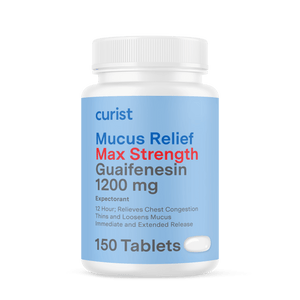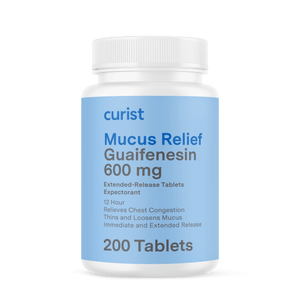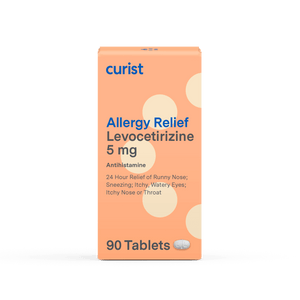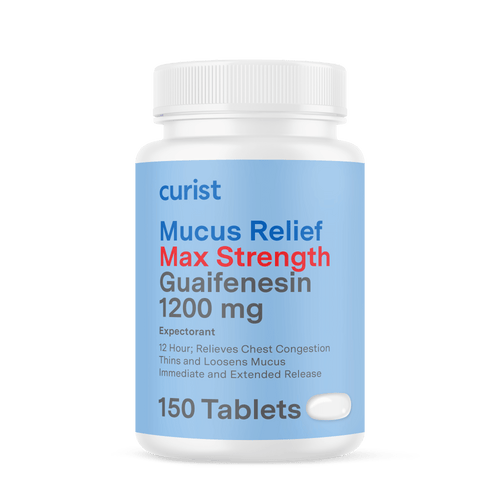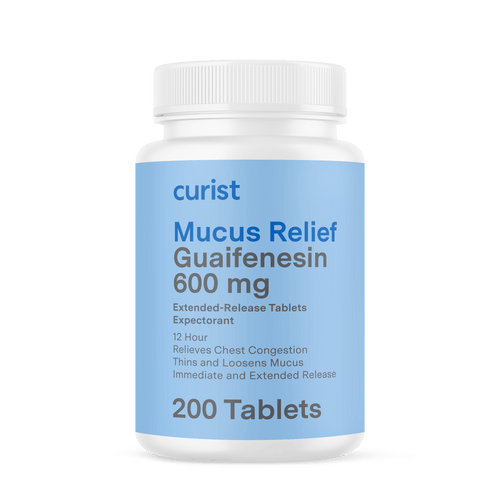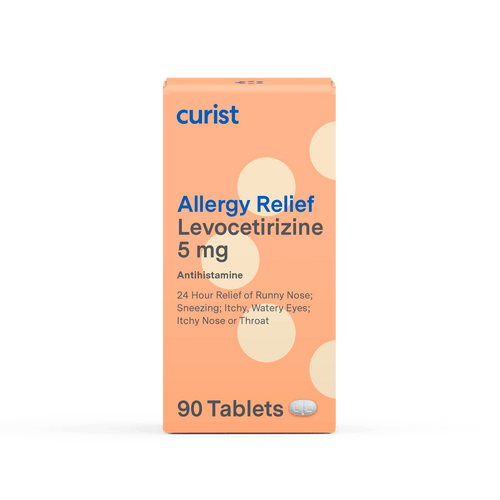By Dr. Faith Goan, PharmD, and Dr. Marc Goldstein, MD, Curist Medical Advisor
Curist delivers over-the-counter medicines to your door at a fraction of the price of traditional brands. We hope everyone stays safe and healthy during this time.
Is a Dry Throat a Symptom of COVID-19?
There is a lot of confusion when people are trying to determine if they have COVID-19. According to the Centers for Disease Control and Prevention (CDC), coronavirus (COVID-19) symptoms that appear 2-14 days after exposure include:
- Fever (100.4 degrees F or higher)
- Dry Cough (no mucus coming up)
- Shortness of breath
- Persistent headaches
- New loss of taste or smell
- Nausea or vomiting
- Diarrhea
- Muscle body aches or pains
- Congestion or runny nose
- Sore throat
Of the symptoms listed above, a dry throat is NOT listed as a common COVID-19 symptom. If not from coronavirus (COVID-19), other possible reasons for a dry throat may be allergies or the common cold. It can be difficult to determine if your dry throat is due to allergies or the common cold. Here are some tips to help you!
Is My Dry Throat An Allergy Symptom?
Allergies are caused by common allergens such as grass, pollen, pet dander, cedar, ragweed, or more. These allergens then trigger an allergic response that include:
- Stuffy nose or runny nose
- Itchy eyes, itchy ears, itchy nose, itchy tongue, itchy skin
- Cough
- Congestion
With these symptoms, congestion can lead to breathing only through the mouth, which can dry out your throat. Taking it one step further, a sore throat can occur with allergies due to mucus running at the back of your throat called post nasal drip. If your dry throat is caused by allergies, you can learn more about the different allergy treatment options at Curist.
Is My Dry Throat Due to The Common Cold?
The common cold can also lead to a dry throat. The common cold can feel like allergy symptoms, but it is not caused by a specific allergen. One way to determine if your dry throat is due to a cold could be if you have these other symptoms:
Not sure how to tell if you have a cold or allergies? Check out Common Cold vs Allergies.
Dry Throat vs Sore Throat: What’s the Difference?
How would you determine if you have a dry throat or a sore throat? Sore throat can feel like a dry throat, but pain is what separates the two. Usually, a sore throat is accompanied with severe pain with or without swallowing. Dry throat simply feels like you need to rehydrate with more water without any pain. To learn more about sore throat and treatment options, check out Sore Throat: Coronavirus, Allergies or Cold?.
Is My Dry Throat From Dehydration?
A dry throat can be caused by simply not staying hydrated enough. If you do not drink enough water, your body begins to lose the natural saliva that helps keep your mouth and throat moist. A key sign of dehydration would be if your urine is darker than usual, or if you are feeling very fatigued. If this is the cause of your dry throat, try buying a gallon of water to drink throughout the day. According to The U.S. National Academies of Sciences, Engineering, and Medicines, here are the recommended daily fluid intake recommendations:
- Men: Approx 15.5 cups (3.7 L) of fluid per day
- Women: 11.5 cups (2.7 L) of fluid per day
2 Tips If Your Dry Throat Is From Sleeping With My Mouth Open
If you find yourself waking up every day with a dry throat, this can be due to sleeping with your mouth open throughout the night. Two simple tips that could help reduce your dry throat symptoms:
- Adhesive Nasal Strips: Nasal strips can help open your nose airway through the night to minimize mouth breathing.
- Humidifier: If the air in your home is extremely dry, this may also dry out your sinuses and throat. A home air humidifier will add additional moisture into the air and may help treat your dry throat.
The Bottom Line: A Dry Throat is NOT a symptom of COVID-19.
A dry throat can occur from many things such as colds, allergies, dehydration, or even sleeping with your mouth open. Some at-home treatments include drinking hot tea, eating soup, or trying throat lozenges from stores near you. If you are concerned about your dry throat, speak to your local healthcare provider for further care.




